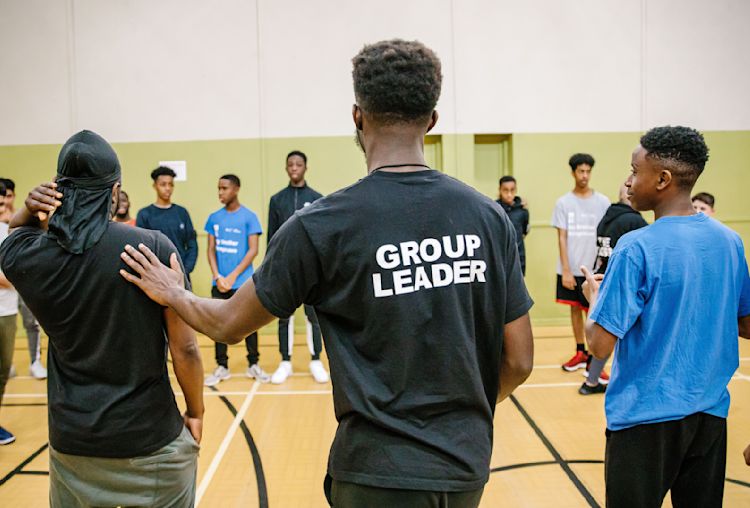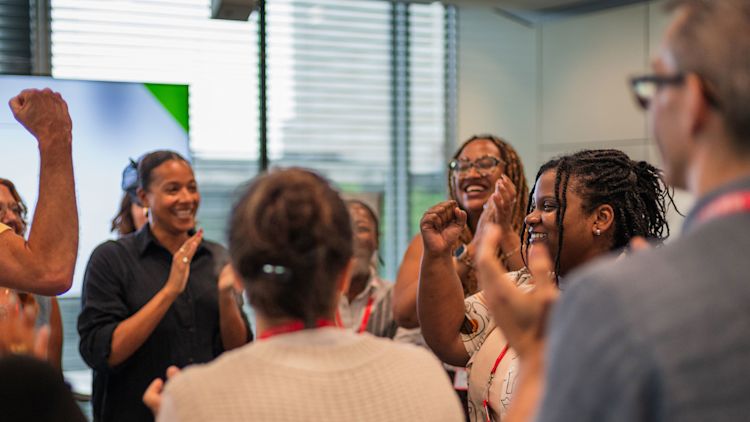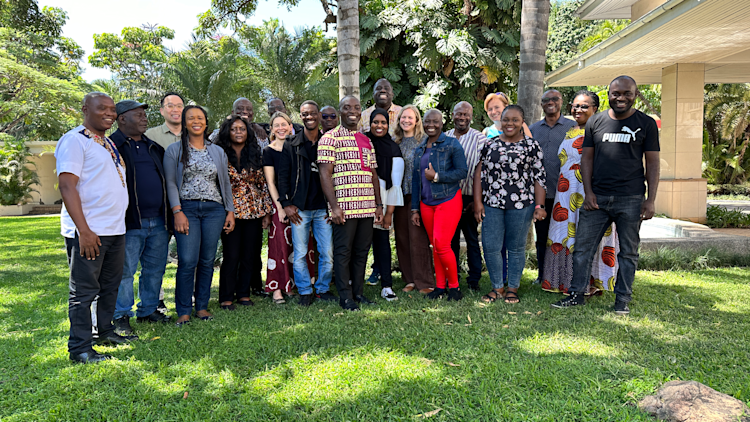
By Juliet Snell, Associate Researcher from Centre for Mental Health
Comic Relief's new report Thriving not just surviving(opens in new window): What works to improve the mental health of boys and young men is the culmination of three years of funding and shows boys and young men to be open to seeking and using mental health support provided it is attractive to them and adaptive to suit their needs. It sets out a range of recommendations for funders like Comic Relief, and for mental health and youth services.
The case for evidence-based mental health support has been well made, but there is often a delay of many years from the publication of research findings to their implementation in mental health services. People experiencing mental health problems cannot afford to wait that long before they benefit from good evidence about what works.
The voluntary and community sector is well placed to experiment but is stifled by short-term funding streams and a lack of research capacity. If mental health programmes can bring evaluation and learning into their heart, with researchers immediately sharing findings with service providers, they have a better chance to accelerate their benefits.
“Thriving Not Just Surviving” is Comic Relief’s initiative to fund projects around the UK to work innovatively with boys and young men at risk of poor mental health. Since 2018, Centre for Mental Health(opens in new window) has joined Comic Relief as its external learning partner, proactively developing and sharing learning themes and embedding them throughout the programme.
We did this by delivering a structured programme of thematic learning from the projects, alongside facilitated events where partners were able to explore the evidence and co-develop solutions for the barriers they encountered.
“Thriving Not Just Surviving” focused on boys and young men because they are generally more reluctant to access mental health support and are less well served by mainstream mental health services. In the past, projects for older men have responded to these concerns by attaching mental health support to “male familiar” activities such as men’s sheds(opens in new window) projects. Many of the organisations funded through “Thriving Not Just Surviving” assumed the same approach would work for younger men, and embedded sports or other male familiar activities into their model. In fact, we learned that rather than requiring “male-familiarity”, good engagement was facilitated by projects being personal, credible and positive.
As learning partner, we analysed the ways that the projects were engaging with young men. We came to understand the ways in which activities were driving and improving engagement. It became clear that activities were not just acting as a hook to draw boys and young men into the project but were playing a range of other roles in protecting their mental health. For example, we began to see boys and young men being helped to draw metaphors from the activities and applying this learning to their mental health. A sports session may be paused while young men discuss their reactions to a sporting moment, and this would teach the young men about parallel scenarios in their daily lives.
We brought emerging learning such as this, alongside monitoring and evaluation data to annual learning events. Discussion workshops with funded partners allowed us all to deepen our thinking and understanding and co-create new approaches for the coming year.
Crucial to the success of this approach was Comic Relief’s explicit openness to hearing about difficulties as well as project successes. Without this open culture, funded partners would have felt the need to justify their original model and would have not had the confidence to adapt, particularly once the Covid-19 pandemic hit the projects.
After the first learning event, funded partners really opened up the range of activities and the ways that activities were used. By the second annual learning event, more were using activities in a wider range of ways.
Boys and young men were increasingly driving the way that activity was used. For example, one project had introduced an outward-bound activity, and found that young men who had traumatic experiences of living rough while fleeing violence drew healing from more positive campfire experiences.
“Thriving Not Just Surviving” has delivered benefits to more boys and young men than hoped, and with surprisingly high retention rates for boys and young men, signalling a positive attitude to seeking help. As the programme nears its final months, almost all funded partners within the programme made significant adaptations to their project delivery. They changed how activities were used to engage young men, reached out to more vulnerable young men differently, developed and changed their partnerships and engaged young men in leadership roles. They have also identified how this learning will influence their organisations’ approaches to boys and young men’s mental health, creating a lasting legacy of the projects.
It has been a rich and rewarding research experience to work within “Thriving Not Just Surviving”. Important learning has come about by bringing rigorous research methodology and a shared exploration of the themes, direct to practitioners from day one of their projects. The result was projects that adapted more quickly to the experiences and needs of boys and young men, and a richer, better informed evaluation.
Centre for Mental Health’s report will shortly be published on Comic Relief’s Reports and Publications page.


